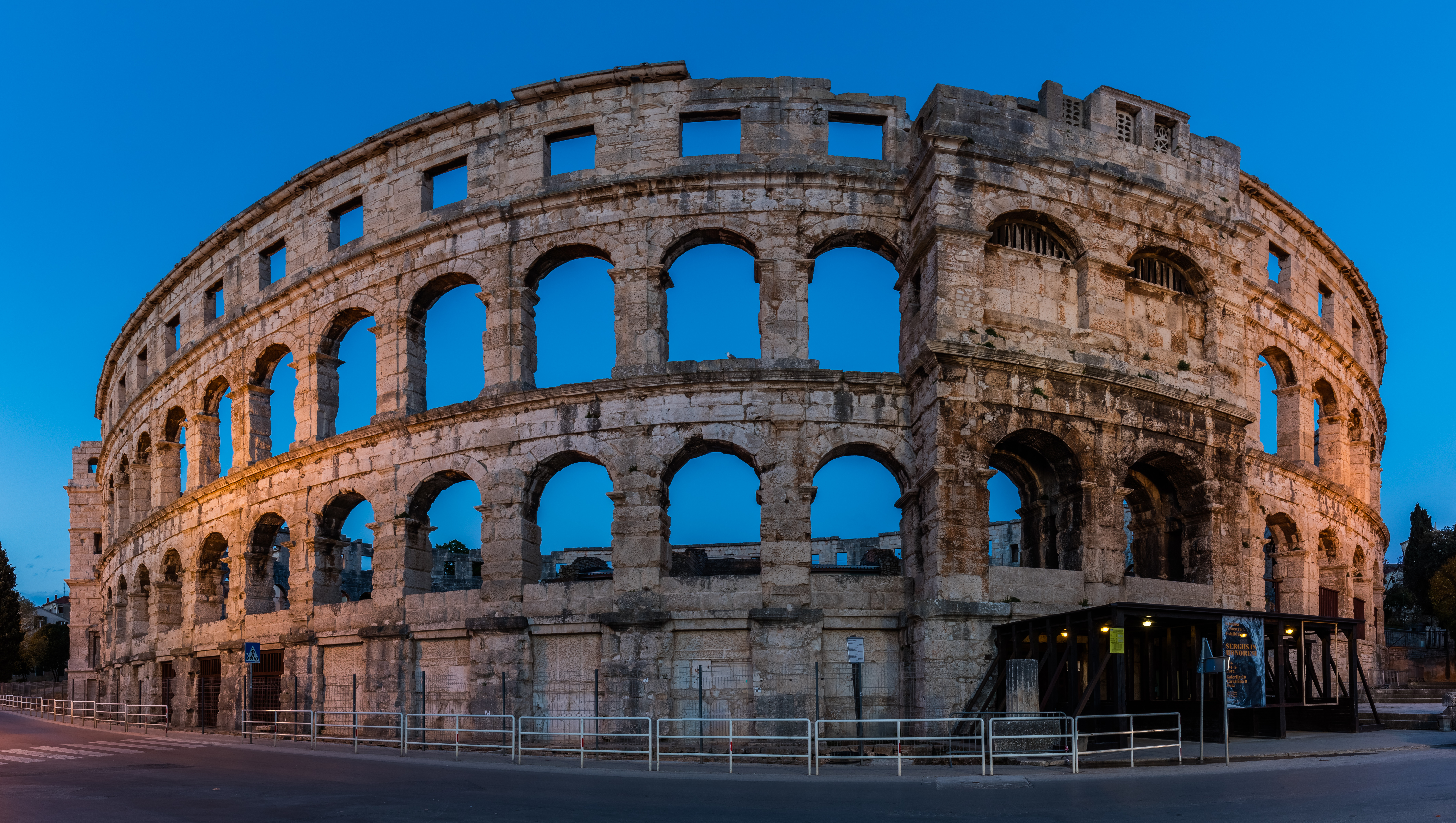|
Vatroslav Mimica
Vatroslav Mimica (25 June 1923 – 15 February 2020) was a Croats, Croatian film director and screenwriter. Early life Born in Omiš, Mimica had enrolled at the University of Zagreb School of Medicine before the outbreak of World War II. In 1942 he joined Young Communist League of Yugoslavia (SKOJ) and in 1943 he went on to join the Yugoslav Partisans, becoming a member of their medical units. Career After the war Mimica wrote literary and film reviews, and his career in filmmaking began in 1950 when he became the director of the Jadran Film production studio. Animation He had his directorial and screenwriting debut in the 1952 Yugoslav film ''In the Storm'' (Croatian language, Croatian: ''U oluji'') which starred Veljko Bulajić, Mia Oremović and Antun Nalis. In the 1950s Mimica worked as a director and writer on a number of critically acclaimed animated films and became a prominent member of the Zagreb School of Animated Films (his 1958 animated short film ''The Loner'' ... [...More Info...] [...Related Items...] OR: [Wikipedia] [Google] [Baidu] |
Omiš
Omiš (, Latin and it, Almissa) is a town and port in the Dalmatia region of Croatia, and is a municipality in the Split-Dalmatia County. The town is situated approximately south-east of Croatia's second largest city, Split. Its location is where the Cetina River meets the Adriatic Sea. Omiš municipality has a population of 14,936 and its area is . Name It is supposed that the name of this city, ''Omiš'', developed from the Slavic ''Holm'', ''Hum'' as a translation from the Illyrian - Greek word ''Onaion'', ''Oneon'', meaning "hill" or "place on the hill", or from Greek onos (όνος) meaning donkey, perhaps from the shape of the rocky promontory by the city (naming a city after a natural form was common practice then, as it is now); there is also the possibility that the name of the settlement ''Onaeum'' was derived from the name of the river which was called ''Nestos'' by the Greek colonists in its lower flow, during Antiquity. According to Petar Šimunović, Omiš is der ... [...More Info...] [...Related Items...] OR: [Wikipedia] [Google] [Baidu] |
Samac (1958 Film)
Samac ( en, Alone) is a 1958 animated short directed by Vatroslav Mimica for Zagreb Film. The short won the studio's first international prize at Venice Film Festival The Venice Film Festival or Venice International Film Festival ( it, Mostra Internazionale d'Arte Cinematografica della Biennale di Venezia, "International Exhibition of Cinematographic Art of the Venice Biennale") is an annual film festival he .... The short is described as a "mordant, yet moving depiction of a clerk fighting a losing battle with the machine age". pp. 136 References External links * 1958 animated films ...[...More Info...] [...Related Items...] OR: [Wikipedia] [Google] [Baidu] |
Anno Domini 1573
''Anno Domini 1573'' ( sh, Seljačka buna 1573, en, 1573 Peasants' Revolt) is a 1975 Yugoslav/ Croatian feature film directed by Vatroslav Mimica. The film was selected for Directors' Fortnight section at Cannes Film Festival in 1976. It is a historical drama film depicting events surrounding the 1573 Croatian-Slovenian peasant revolt, with Fabijan Šovagović starring as Matija Gubec, the legendary peasant leader. Plot In 1573, in Hrvatsko Zagorje, Petar and his father are out in Baron Franjo Tahy's forest searching food for their family, but are caught by Tahy's men. Petar's father is forced to strip naked, and then is chased down and killed by Tahy's dogs. Petar returns to his village, where Tahy is taking food from the peasants for his own supplies; even virgin girls are taken away to his castle. Rumours are beginning to swell about the "Oathed Brotherhood," a group of peasant leaders who intend to rise up against the nobility. A comedian troupe (including Regica) arr ... [...More Info...] [...Related Items...] OR: [Wikipedia] [Google] [Baidu] |
Golden Arena For Best Director
The Golden Arena for Best Director ''( Croatian: Zlatna arena za režiju'') is an award given for best director at the Pula Film Festival, which was until 1992 the Yugoslav equivalent of the Academy Awards. Since 1992 and the breakup of Yugoslavia the competition narrowed to Croatian films only. The first festival was held in 1954, but the award was introduced in 1955. List of winners Yugoslav competition (1955–90) Croatian competition (1992–present) Multiple winners The following directors have received multiple awards. The list is sorted by the number of total awards. Years in bold indicate wins in Yugoslav competition (1955–1990). Shared wins are indicated with an asterisk (*). *4 : Zrinko Ogresta (1995, 1999, 2016, 2021) *3 : Aleksandar Petrović (1965, 1967*, 1972) *3 : Krsto Papić (1970, 1992, 1998) *3 : Dalibor Matanić (2002, 2011, 2015) *2 : Branko Bauer (1956*, 1963) *2 : Matjaž Klopčič (1973, 1975) *2 : Živojin Pavlović (1968, 1977) *2 : G ... [...More Info...] [...Related Items...] OR: [Wikipedia] [Google] [Baidu] |
4th Moscow International Film Festival
The 4th Moscow International Film Festival was held from 5 to 20 July 1965. The Grand Prix was shared between the Soviet film ''War and Peace'' directed by Sergei Bondarchuk and the Hungarian film ''Twenty Hours'' directed by Zoltán Fábri. Jury * Sergei Gerasimov (USSR - President of the Jury) * Veljko Bulajić (Yugoslavia) * Zoltán Várkonyi (Hungary) * Marina Vlady (France) * Mircea Drăgan (Romania) * Raj Kapoor (India) * Grigori Kozintsev (USSR) * Jiří Marek (Czechoslovakia) * Czesław Petelski (Poland) * Kiyohiko Ushihara (Japan) * Leonardo Fioravanti (Italy) * Fred Zinnemann (USA) * Kamil Yarmatov (USSR) Films in competition The following films were selected for the main competition: Awards * Grand Prix: ** ''War and Peace'' and Sergei Bondarchuk ** ''Twenty Hours'' and Zoltán Fábri * Golden Prizes: ** ''Heaven on One's Head'' by Yves Ciampi ** ''Atentát'' by Jiří Sequens * Special Silver Prize: '' The Camp Followers'' by Valerio Zurlini * Silver Prizes: ** ' ... [...More Info...] [...Related Items...] OR: [Wikipedia] [Google] [Baidu] |
Pula Film Festival
Pula Film Festival ( hr, Pulski filmski festival) is an annual Croatian film festival, established in 1954. It is held in a Roman amphitheater known as the Pula Arena. Pula Film Festival is the oldest Croatian film festival and is usually held in the summer, in July or August. Apart from film screenings open to the public, the annual Croatian film industry awards are also traditionally presented at the festival. The awards presented at the festival (called Golden Arenas) are the main national film awards in the country, and they serve as the Croatian equivalent of the American Academy Awards. The festival was originally started in 1954 and within a few years it became the centerpiece event of the Yugoslav film industry, with the first national awards being presented in 1957. This lasted until 1991, when the festival was cancelled due to the breakup of Yugoslavia, only to resume in 1992 as the Croatian film awards festival. It has been held every year since (with the exception of ... [...More Info...] [...Related Items...] OR: [Wikipedia] [Google] [Baidu] |
Big Golden Arena For Best Film
The Golden Arena awards were established in 1955 as the Yugoslav national film awards presented annually at the Pula Film Festival in Pula, Croatia, with the Big Golden Arena for Best Film its main prize. From 1955 to 1990 the awards were the Yugoslav cinema equivalent of the Academy Awards. The award is named after the Pula Arena, the 1st-century Roman amphitheatre in the coastal city of Pula, where film screenings preceding the awards ceremony traditionally take place. In 1991 the festival was cancelled due to the breakup of Yugoslavia, but then resumed in 1992 as the Croatian film awards festival, from then on excluding films and filmmakers from present-day Slovenia, Bosnia and Herzegovina, Montenegro, Serbia, and North Macedonia. It has been held in this format every year since, although no prizes were awarded at the 1994 edition. The festival's competition program usually includes screenings of all locally produced feature films made in the preceding 12 months, made possi ... [...More Info...] [...Related Items...] OR: [Wikipedia] [Google] [Baidu] |
Prometheus Of The Island
''Prometheus of the Island'' ( sh, Prometej s otoka Viševice), also known in English as ''Prometheus from the island of Viševica'', is a 1964 Yugoslav film directed by Vatroslav Mimica. It won the Big Golden Arena for Best Film at the 1965 Pula Film Festival (shared with Aleksandar Petrović's film ''Three''). The film was also entered into the 4th Moscow International Film Festival The 4th Moscow International Film Festival was held from 5 to 20 July 1965. The Grand Prix was shared between the Soviet film ''War and Peace'' directed by Sergei Bondarchuk and the Hungarian film ''Twenty Hours'' directed by Zoltán Fábri. J ... winning a Special Diploma. References External links * *''Prometej s otoka Viševice''at hrfilm.hr 1964 films Croatian drama films 1964 drama films Serbo-Croatian-language films Films directed by Vatroslav Mimica Jadran Film films Films set on islands Films set in the Mediterranean Sea Croatian black-and-white films Yugoslav drama ... [...More Info...] [...Related Items...] OR: [Wikipedia] [Google] [Baidu] |
Giorgia Moll
Giorgia Moll (born 14 January 1938) is an Italian film actress. She was sometimes credited as Georgia Moll and Georgia Mool. Background Moll was born in Prata di Pordenone to a German father and an Italian mother. At a young age, she began a brief career as a model and in 1955 she won the "Miss Cinema" beauty contest. The following year she started her film career, being mainly active in comedies and adventure films. She was critically appreciated for her dramatic performance in Damiano Damiani's ''Lipstick'' (1960). Moll retired from acting in the early 1970s. Selected filmography * 1956: ''Lo svitato'' by Carlo Lizzani : Elena * 1956: ''Nero's Weekend'' by Steno : Lidia * 1956: ''Women's Club'' by Ralph Habib : Gina * 1957: ''Husbands in the City'' by Luigi Comencini : Lionella * 1958: ''Mogli pericolose'' by Luigi Comencini : Claudina Carpi * 1958: ''The Quiet American'' by Joseph L. Mankiewicz : Phuong * 1959: '' Wild Cats on the Beach'' by Vittorio Sala : Adelina * 1959: ... [...More Info...] [...Related Items...] OR: [Wikipedia] [Google] [Baidu] |
Edmund Purdom
Edmund Anthony Cutlar Purdom (19 December 19241 January 2009) was an English actor, voice artist, and director. He worked first on stage in Britain, performing various works by Shakespeare, then in America on Broadway and in Hollywood, and eventually in Italy. He is perhaps best known for his starring role in 1954's historical epic ''The Egyptian''. By taking over important roles exited by Mario Lanza and Marlon Brando, Purdom was known by the mid-1950s as "The Replacement Star". After the failure of his Hollywood career, Purdom returned briefly to the United Kingdom and then settled in Italy, where he spent the remainder of his life appearing in local films. Between the 1970s and 1990s, he was a regular in European genre cinema, working with directors like Juan Piquer Simón, Joe D'Amato, Sergio Martino and Ruggero Deodato. His daughter, Lilan Purdom, became a journalist for French TV Channel TF1. She is the author of the book ''Hollywood Garage'', about her father's career. ... [...More Info...] [...Related Items...] OR: [Wikipedia] [Google] [Baidu] |
Italian Language
Italian (''italiano'' or ) is a Romance language of the Indo-European language family that evolved from the Vulgar Latin of the Roman Empire. Together with Sardinian, Italian is the least divergent language from Latin. Spoken by about 85 million people (2022), Italian is an official language in Italy, Switzerland (Ticino and the Grisons), San Marino, and Vatican City. It has an official minority status in western Istria (Croatia and Slovenia). Italian is also spoken by large immigrant and expatriate communities in the Americas and Australia.Ethnologue report for language code:ita (Italy) – Gordon, Raymond G., Jr. (ed.), 2005. Ethnologue: Languages of the World, Fifteenth edition. Dallas, Tex.: SIL International. Online version Itali ... [...More Info...] [...Related Items...] OR: [Wikipedia] [Google] [Baidu] |



